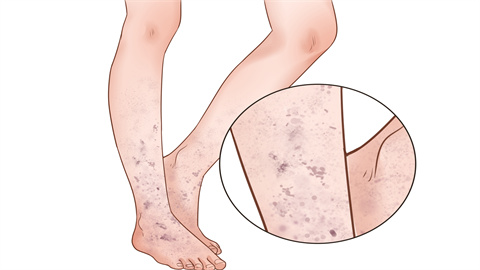Why Do Capillaries Dilate?
Generally, capillary dilation may be caused by long-term sun exposure, drastic temperature changes, rosacea, hormone-dependent dermatitis, cirrhosis, and other factors. It is recommended to seek timely medical consultation to identify the underlying cause and receive appropriate treatment under a physician's guidance. Detailed explanations are as follows:

1. Long-term sun exposure: Prolonged ultraviolet radiation damages the skin barrier, causing reduced elasticity and noticeable dilation of capillary walls, commonly occurring in exposed areas such as the face and neck. When going outdoors, apply sunscreen, wear hats, and use umbrellas to reduce direct UV exposure.
2. Drastic temperature changes: Frequent alternation between cold and heat stimulates the skin, causing capillaries to repeatedly constrict and dilate, gradually losing elasticity and remaining persistently dilated. Avoid sudden transitions from cold to hot environments. In winter, keep warm, and in summer, avoid prolonged sun exposure or frequent entry into and out of air-conditioned rooms, to reduce temperature-induced irritation to capillaries.
3. Rosacea: Abnormal vascular constriction and dilation functions of the skin, accompanied by inflammatory reactions, lead to facial capillary dilation, often accompanied by redness and papules. Patients may follow medical advice to use anti-inflammatory medications such as metronidazole gel, azelaic acid cream, or isotretinoin gel to improve the state of vascular dilation.
4. Hormone-dependent dermatitis: Long-term use of skincare products or medications containing hormones can damage the skin barrier, leading to capillary dilation accompanied by itching and flaking. Discontinuation of hormone-containing products should be done gradually under medical supervision. Patients may use medications like tacrolimus ointment, pimecrolimus cream, or diphenylcyclopropenone cream to repair the skin barrier and alleviate inflammation.
5. Cirrhosis: Impaired liver function leads to estrogen metabolism disorders, causing estrogen accumulation in the body that stimulates capillary dilation, commonly seen on the face, chest, and other areas. Patients should follow medical advice to use hepatoprotective medications such as compound glycyrrhizin tablets, silybin capsules, or polyene phosphatidylcholine capsules.
In daily life, choose mild skincare products and avoid using harsh cleansers or exfoliating products. Maintain skin hydration, avoid excessive cleansing, maintain a regular lifestyle, and reduce late-night activities to provide favorable conditions for skin repair.







